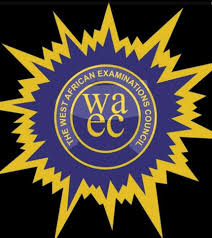WAEC cites security and operational factors in English Language paper delay; assures stakeholders of integrity and improvements
Barely weeks after the Joint Admissions and Matriculation Board (JAMB) conducted a nationwide resit following disruptions in its earlier examination cycle, the West African Examinations Council (WAEC) has now faced a similar challenge this time involving the flagship English Language Paper 2 of the 2025 WASSCE for School Candidates.
In a press release issued from its national office in Yaba, Lagos, WAEC acknowledged the delay in the timely conduct of the English paper and attributed it to a series of logistical hurdles, security precautions, and sociocultural dynamics encountered during the exam’s rollout.
The English Language paper, a compulsory subject for all candidates, was scheduled for Tuesday, May 28, but was not conducted at the usual time across several centres.
WAEC explained that while its top priority remains the prevention of exam material leakage, the strict security measures unintentionally disrupted the exam schedule.
“While we successfully achieved our objective, it inadvertently impacted the timeliness and seamless conduct of the examination,” the statement read.
The delay follows closely on the heels of JAMB’s earlier admission of widespread technical and procedural issues that led to a high profile resit of the UTME in several affected centres.
The recurrence of such incidents across two of Nigeria’s most critical examination bodies has raised fresh concerns about the resilience of the national exam system and the adequacy of contingency planning under high stakes conditions.
WAEC, in its statement signed by Moyosola Adesina, Acting Head of Public Affairs, offered an apology to candidates, schools, and parents, recognizing the potential emotional and logistical toll of such delays.
The Council emphasized that it is working closely with security agencies to prevent similar occurrences in the future.
“We recognize the importance of timely conduct of examinations and the impact of this decision on the candidates, their schools and parents,” it noted.
Education stakeholders have continued to express concern over the strain these disruptions place on candidates many of whom are preparing for university admission processes that rely on seamless performance in both WAEC and JAMB examinations.
Nonetheless, WAEC reaffirmed its commitment to excellence, transparency, and continuous improvement.
It also commended the cooperation of stakeholders across the education sector during this period and promised to maintain the highest standards in examination conduct.
As the examination season progresses, many will be watching to see how both WAEC and JAMB respond to growing calls for stronger infrastructure, transparent processes, and more proactive crisis management in Nigeria’s national examination landscape.







